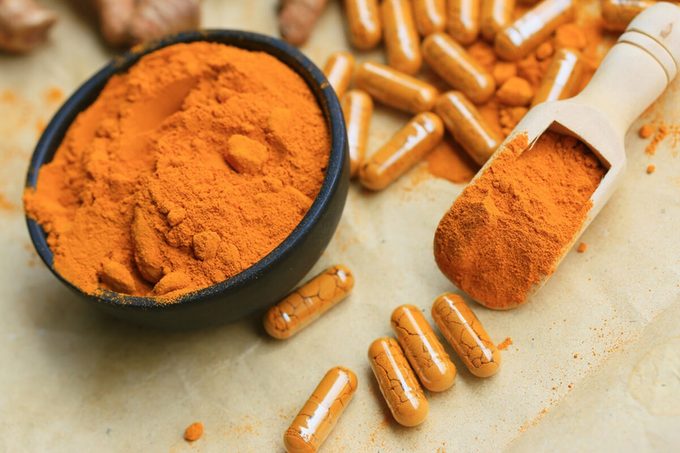When It Comes to Eating Turmeric, How Much Is Just Right?
We have the answer.

Folks in places like India have valued turmeric for millennia, but here in the West, we’re just catching on. Made from dried plant roots, turmeric powder is bright golden-yellow with a warm, bitter taste, and is a major ingredient in many curry recipes.
Why is turmeric so popular?
According to the National Institutes of Health (NIH), turmeric has long been used in Ayurvedic medicine to help with pain, fatigue, rheumatism and breathing problems. Issues that we now know are alleviated by curcumin, a main ingredient in the plant.
Today, turmeric is trending as a dietary supplement and potential preventative/treatment mode with regard to a variety of conditions, including arthritis, diabetes, heart disease, cancer treatment and prevention, Alzheimer’s disease, colitis and various other inflammatory conditions.
But how much turmeric per day is healthy?
Turmeric is considered safe as an ingredient in food, and even in beauty treatments, but high doses and long-term use may cause gastrointestinal problems. In addition, its main ingredient, curcumin, can act as a blood thinner, which means that it is not an ideal supplement to take if you’re on prescription blood thinners or if you’re about to have surgery. No standard recommended dosage has been established as of yet, which is why the NIH recommends that you check with your own health care provider if you want to move from simply cooking with turmeric to taking turmeric or curcumin supplements.
That being said, Dr. Bindiya Gandhi, a certified physician at American Board Family Medicine, recommends 400 to 600 mg of turmeric up to three times per day, as tolerated. If you’re thinking of using turmeric root, itself, as a supplement, Dr. Gandhi recommends a cut-root dose of 1.5 to 3 mg per day. Enjoy an easy, creamy turmeric latte as part of your evening or morning routine.
Just keep in mind, turmeric supplements haven’t been studied in children under the age of 15, so talk to a pediatrician before starting a regimen. (The key word being “supplement,” because including it as an ingredient in foods is generally considered perfectly fine.)
Next, read up on the power of curcumin.




